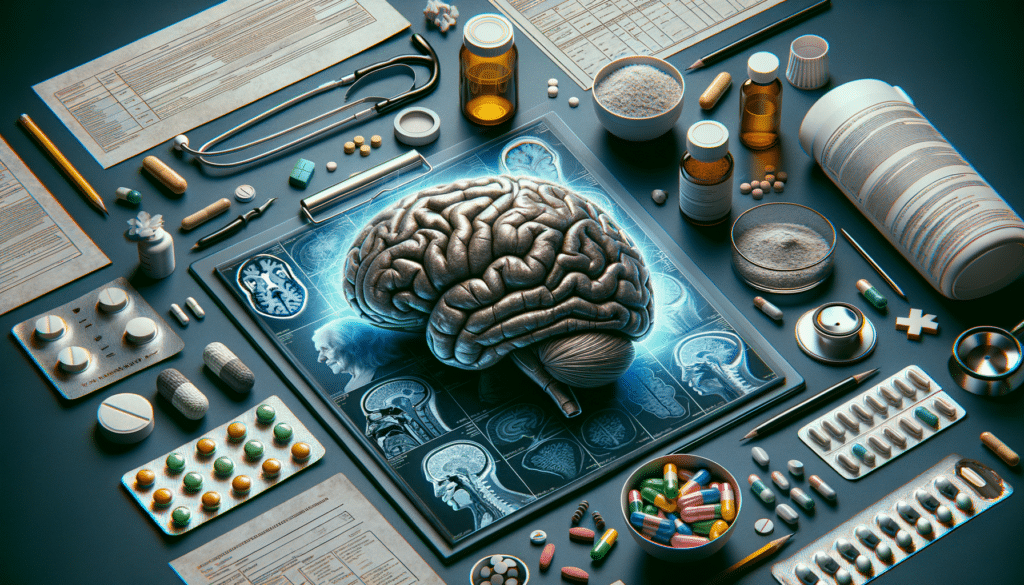Recognizing the Signs of Alzheimer’s Disease
Alzheimer’s disease, a progressive neurological disorder, is the most common cause of dementia among older adults. Recognizing the early signs of Alzheimer’s can lead to earlier diagnosis and intervention, potentially slowing the progression of the disease. The signs and symptoms of Alzheimer’s can vary, but common early indicators include memory loss that disrupts daily life, challenges in planning or solving problems, and difficulty completing familiar tasks. As the disease progresses, individuals may experience confusion with time or place, trouble understanding visual images and spatial relationships, and new problems with words in speaking or writing.
One of the hallmark signs of Alzheimer’s is memory loss, particularly forgetting recently learned information. This might include forgetting important dates or events, asking for the same information repeatedly, or relying on memory aids such as reminder notes or electronic devices. Another early sign is difficulty in planning or solving problems, such as trouble following a familiar recipe or keeping track of monthly bills. These changes can significantly affect daily life, making it crucial for individuals and their families to seek medical advice if these symptoms appear.
Other symptoms may include:
- Confusion with time or place: Individuals may lose track of dates, seasons, and the passage of time. They might forget where they are or how they got there.
- Changes in mood and personality: People with Alzheimer’s can become confused, suspicious, depressed, fearful, or anxious. They may become easily upset at home, at work, with friends, or in places where they are out of their comfort zone.
- Withdrawal from work or social activities: Individuals may start to remove themselves from hobbies, social activities, work projects, or sports.
Recognizing these signs early can facilitate timely intervention and support.
Current Treatment Modalities for Alzheimer’s
While there is currently no cure for Alzheimer’s disease, several treatment options can help manage symptoms and improve the quality of life for those affected. Treatment approaches generally focus on maintaining mental function, managing behavioral symptoms, and slowing the progression of the disease. Medications such as cholinesterase inhibitors and memantine are commonly prescribed to help with memory symptoms and other cognitive changes.
Cholinesterase inhibitors, including donepezil, rivastigmine, and galantamine, work by boosting levels of a chemical messenger involved in memory and judgment. These medications are typically used in the early to moderate stages of Alzheimer’s. Memantine, another medication, is often used in the moderate to severe stages and works by regulating the activity of glutamate, a different chemical messenger involved in learning and memory.
In addition to medications, non-drug approaches are essential in managing Alzheimer’s disease. These can include creating a safe and supportive environment, engaging in regular physical activity, and participating in cognitive training exercises. Caregivers play a crucial role in managing daily routines and ensuring the well-being of individuals with Alzheimer’s.
Important aspects of treatment include:
- Routine and structure: Establishing a daily routine can help individuals know what to expect and reduce confusion and anxiety.
- Environmental modifications: Simplifying the home environment can help individuals navigate their surroundings more easily and safely.
- Support networks: Engaging with support groups and community resources can provide valuable assistance and emotional support for both patients and caregivers.
Innovative Research and Future Directions
Research into Alzheimer’s disease is ongoing, with scientists exploring new ways to treat and prevent this condition. Innovative approaches include investigating the role of amyloid and tau proteins in the brain, exploring the potential of immunotherapy, and studying the impact of lifestyle factors on disease progression. Clinical trials are essential for testing new treatments and understanding their effects on the disease.
One promising area of research is the development of disease-modifying therapies that target the underlying causes of Alzheimer’s rather than just alleviating symptoms. These therapies aim to slow or halt the progression of the disease by targeting the accumulation of amyloid plaques and tau tangles in the brain. Immunotherapy, which involves using the body’s immune system to fight disease, is also being studied as a potential treatment for Alzheimer’s.
Lifestyle factors such as diet, exercise, and cognitive engagement are being investigated for their potential to reduce the risk of developing Alzheimer’s. Studies suggest that a heart-healthy diet, regular physical activity, and maintaining social connections can contribute to brain health and potentially delay the onset of cognitive decline.
Key areas of research include:
- Biomarkers: Identifying biological markers that can predict the onset and progression of Alzheimer’s disease.
- Genetic studies: Understanding the genetic factors that contribute to Alzheimer’s and how they interact with environmental influences.
- Neuroimaging: Using advanced imaging techniques to study changes in the brain associated with Alzheimer’s.
Support and Resources for Alzheimer’s Patients and Caregivers
Living with Alzheimer’s disease can be challenging for both patients and their caregivers. Support and resources are vital in managing the emotional, physical, and financial aspects of the disease. Organizations dedicated to Alzheimer’s research and support offer a wealth of resources, including educational materials, support groups, and helplines.
Caregivers often face significant stress and burnout, making it essential to seek support and respite care when needed. Support groups provide a platform for caregivers to share experiences, learn from others, and gain emotional support. Additionally, educational workshops and seminars can offer valuable insights into managing the disease and coping with its challenges.
Financial planning is another crucial aspect of managing Alzheimer’s. Understanding insurance options, legal considerations, and long-term care planning can help families prepare for the future and ensure that patients receive the care they need.
Key resources for support include:
- Alzheimer’s organizations: These organizations offer a variety of resources, including hotlines, online communities, and educational materials.
- Local support groups: Engaging with local support groups can provide a sense of community and shared experience.
- Respite care services: These services offer temporary relief for caregivers, allowing them to take a break and recharge.
Conclusion: Navigating the Journey with Alzheimer’s
Alzheimer’s disease presents significant challenges, but understanding its signs and exploring treatment options can empower individuals and their families to navigate the journey with greater confidence and resilience. Early recognition of symptoms allows for timely intervention, which can improve the quality of life for those affected. While there is currently no cure, ongoing research and innovative treatment approaches offer hope for the future.
Support networks and resources play a vital role in managing the disease and providing assistance to both patients and caregivers. By staying informed and engaged, individuals can better cope with the challenges of Alzheimer’s and maintain a sense of purpose and connection. As research continues to advance, there is optimism that new treatments and preventive measures will emerge, offering hope to millions affected by this condition.





